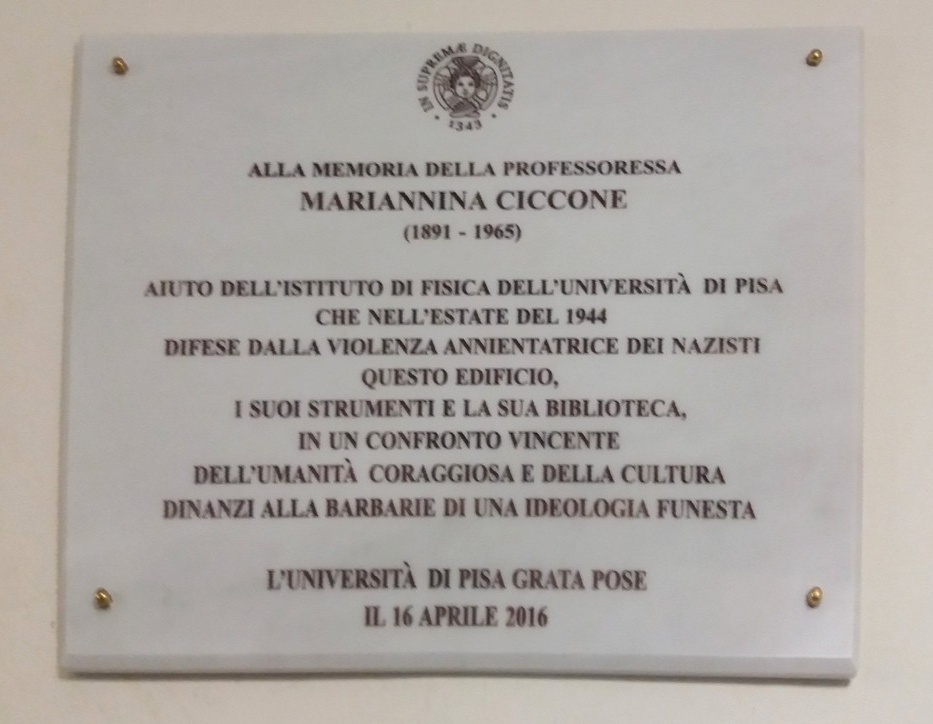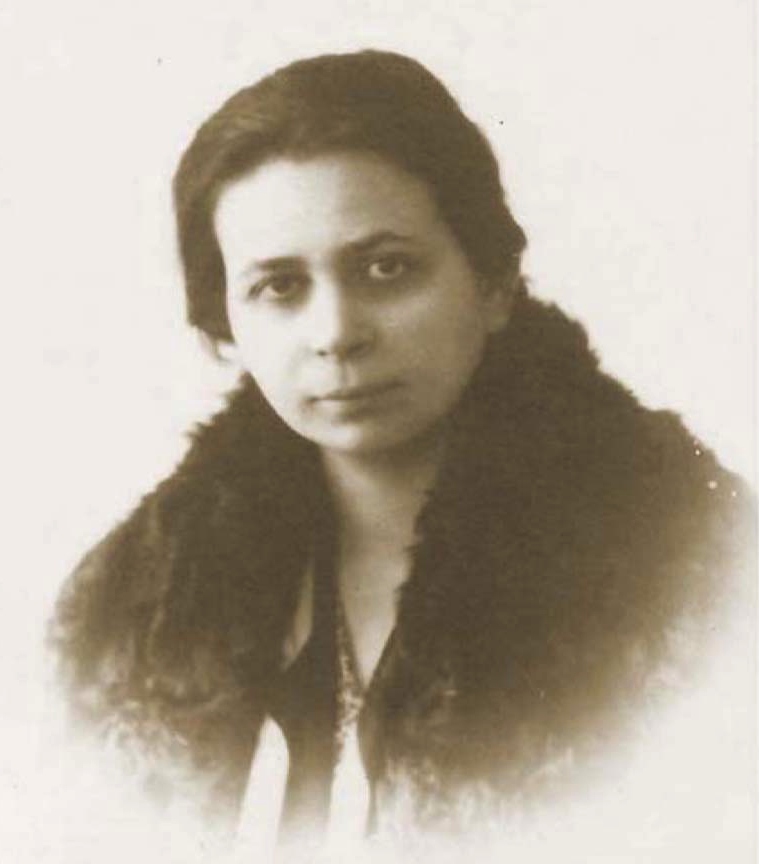
Madonna Louise Veronica Ciccone, better known as Madonna, does not need further introductions. The absolute worldwide queen of pop music, gay icon and inspiration for multiple generations of women, turned 64 on August 16th and celebrated her birthday in the villa of her friend Luisa Beccaria, a famous fashion designer, near Noto (UNESCO World Heritage Site for its magnificient baroque architectures in the Southern end of Sicily) [1].
The mayor of the Sicilian town, Corrado Figura, welcomed her with unreleased certificates about her origins. They could prove the distant kinship between the star and some of the Ciccones who lived in Noto in the late 19th century [2].
Mariannina Corradina Ciccone, known as “the Sicilian Tigress” or “the Tigress of Noto” is a fairly unknown woman, albeit one who shared more than her surname with Madonna. Like the American singer, she was brilliant, talented, courageous and revolutionary at heart. They are both women who stand out in their historical period.
Professor Ciccone, as Mariannina was also known, was one of the first professors to lecture in an Italian scientific department.
She was born in Noto in 1891 to a humble family in a period when women could hardly pursue their education, let alone the possibility to study subjects that were traditionally considered incompatible with women’s attitudes. However, she did not give up to the deeply rooted sexism and patriarchal, misogynistic mindset of the time. In 1919 she got a degree in Mathematics at the University of Pisa (110/110 as a final mark) and in 1924 got an additional degree in Physics at the same university. She had a long, successful carreer, worked with German and French institutions and famous scientists like Professor Gerhard Herzberg (Laureate of the Nobel Prize for Chemistry in 1971). She devoted her life to lecturing and researching until 1962, when she returned to her hometown to die three years later, in 1965.
Something peculiar happened to her in the summer of 1944 that made her “the Sicilian Tigress”. She defended the Physics Institute in Pisa against the Nazis’ attempt to destroy and plunder it, with the same fury of a tigress defending her puppies. Her proficiency in German, along with her courage and determination to not leave the Institute, impressed the German Nazis. They gave up and left alone the building, its scientific tools and inestimable library. As a memento of her courage and actions, a plaque was fixed on the facade of Palazzo Matteucci in Pisa in 2016 [3] [4] [5] [6].
The surname Ciccone may well come from the modifications Italians usually apply to the name Francesco. Basically, Sicilian speakers change it into “Ciccio or Cicco” which is “augmented” to Ciccione or Ciccone (the ending -one indicates a bigger variant) if the person by that name was taller or larger than average. Today, the surname exists all over Italy, especially in Abruzzo, Lazio, Molise, Campania, Puglia and Calabria. In the Middle Ages, Ciccone was also a name, e.g. Ciccone Minutolo who lived around 1350. The oldest statement of this surname in Sicily dates back to 1681 and refers to two people who lived in Cassaro, a town in the surroundings of Syracuse, at that time [7] [8] [9]. It is well known that Gaetano Ciccone, the popstar’s grandfather, was from Pacentro (a town in Abruzzo). He emigrated to the United States of America in 1920 [10] [11]. One may speculate that one of his close or distant relatives moved to Noto before that date, but that never happened.

The Ciccones from Noto, including professor Mariannina’s family, at the end of the 19th century are all descended from one ancestor whose name was Francesco, and he did not have any surname. Indeed, he was indicated as “proietto”, i.d. son of unknown parents, on the official certificates. Francesco was born in Noto around 1806 and there he died very young in 1833. His sons took the surname Ciccone. Among them there was Giuseppe Ciccone, who was born in Noto in 1832, and got second-married to Marianna Isidoro Iacono in 1858. He was the grand-father of the Sicilian scientist [12].
The Ciccones from Noto, including professor Mariannina’s family, at the end of the 19th century are all descended from one ancestor whose name was Francesco, and he did not have any surname. Indeed, he was indicated as “proietto”, i.d. son of unknown parents, on the official certificates. Francesco was born in Noto around 1806 and there he died very young in 1833. His sons took the surname Ciccone. Among them there was Giuseppe Ciccone, who was born in Noto in 1832, and got second-married to Marianna Isidoro Iacono in 1858. He was the grand-father of the Sicilian scientist [12].
[1] https://www.corriere.it/moda/22_agosto_16/madonna-festeggia-64-anni-sicilia-figli-stilista-luisa-beccaria-4add9170-1d60-11ed-9bc5-36542fd1b108.shtml/
[2] https://www.ragusanews.com/moda-e-gossip-madonna-origini-solo-abruzzesi-da-noto-un-grido-siciliana-e-foto-163149/
[3] https://www.unipi.it/index.php/news/item/6810-estate-1944-a-pisa/
[4] https://youtu.be/0auCSdFyV_Q/
[5] https://www.pisatoday.it/cronaca/celebrazione-mariannina-ciccone-pisa.html/
[6] https://it.wikipedia.org/wiki/Anna_Maria_Ciccone/
[7] https://www.cognomix.it/origine-cognome/ciccone.php/
[8] Capone, G. Ricerche sul Medioevo napoletano: aspetti e momenti della vita economica e sociale a Napoli tra decimo e quindicesimo secolo. Italia, Athena, 1996
[9] Deputazione del Regno Serie “Riveli di anime e terre” (1681-1756) n. 51 A, Indice onomastico, a cura dell’Archivio di Stato di Palermo – Soprintendenza Archivistica della Sicilia
[10] https://youtu.be/MZdfKNPiib4/
[11] List or Manifest of alien passengers for the U.S. immigration officer at port arrival of New York – Passengers: list 9 – Passengers sailing from Naples Apr 19, 1920 – Arriving at Port of New York May 3, 1920
[12] https://www.antenati.san.beniculturali.it/ark:/12657/an_ua35933509/wOpZ77J/ (da pagina 39 a 46)







Non mi sorprende, l’autore di questa ricerca, non poteva essere, che Fabio Cardile. Bravgissimo. c’ìao Fabio. Salvatore Italia.